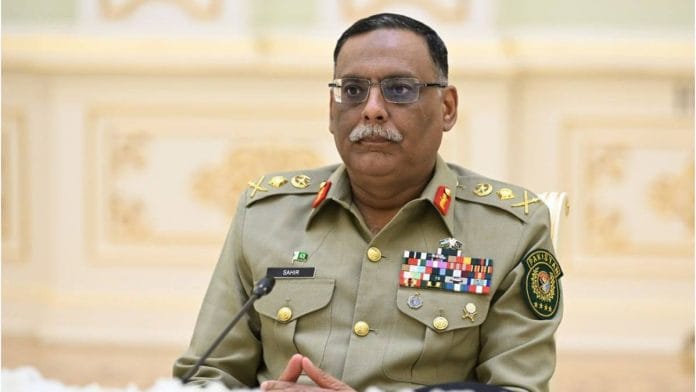New Delhi: Pakistan’s rhetoric against India refuses to die down—this time, it has come from Chairman Joint Chiefs of Staff Committee (CJCSC) General Sahir Shamshad Mirza. Earlier last week, Mirza ironically described the Indian system as a “politicised military and militarised polity”, calling it a “dangerous combination”.
Pointing out increased risks of miscalculation in a nuclearised region, the Pakistan General said that third-party mediation is essential in the resolution of disputes, including over Kashmir—a line that directly contradicts India’s stance that Kashmir is a strictly bilateral issue. On the other hand, he stressed his nation’s commitment to dialogue over disengagement, peace over conflict, and civility over jingoism.
He was delivering the keynote address at the closing ceremony of the ‘Islamabad Symposium 2025’, organised by the National University of Sciences & Technology (NUST) in Islamabad on 16 October.
“Pakistan prefers dialogue, but we are confronted with an India that continues to lower the threshold of escalation,” Pakistan General Mirza said, addressing an audience of diplomats, scholars, students, and members of the business and bureaucratic community. “We believe that a third party is essential to any possible mechanism of dispute resolution between India and Pakistan. We shall always welcome such initiatives by any state, international body or multilateral organisation.”
“India is an important country of the Global South and an aspirant for a major stake in the world order. However, it cherishes hegemonism and expansionism, envisions radicalism, and blatantly defies UN resolutions, international law and human rights,” Pakistan General Mirza added. “In essence, India’s current approach is the academic definition of the antithesis of the aspirations of the Global South, making it a probable Trojan horse in the camp.”
Pakistan General repeats claims
Pakistan General Mirza is considered close to Pakistan’s Chief of the Army Staff (COAS) Asim Munir, and his comments in Islamabad are not the first time he has made them.
Earlier at the Shangri-La Dialogue in May 2025, the Pakistan General, referring to the post-Pahalgam terror attack environment, noted that the threshold for an escalatory war had dangerously declined and that the risk now extended beyond the disputed territory into “all of India and all of Pakistan”.
He attributed the growing instability to India’s current political and military posturing, which he described as having an “extremist mindset”. He also warned that the absence of a reliable crisis management mechanism might leave too little time for global powers to intervene and de-escalate hostilities in future conflicts.
“They will probably be too late to avert damage and destruction,” Pakistan General Mirza claimed before concluding with his criticisms of India’s lack of respect for “red lines”, its hegemonic posturing, and the absence of trust, warning that such systemic issues rendered any meaningful crisis mechanism ineffective.
“Unless you think of yourself as equal and speak from that position, there will be no trust, only a vacuum. We are open to any number of communication mechanisms, but they must be rooted in local realities, culture, and mutual respect,” the Pakistan General said.
It was two days after his speech that the Pakistan Army Chief Asim Munir, in a passing day speech at the Pakistan Military Academy, Kabul, yet again made his usual threats against India along similar lines, claiming that Pakistan would respond “decisively, beyond proportions, to even a minor provocation”.
“I advise and firmly caution India’s military leadership that there is no space for war in a nuclearised environment. The onus of ensuing escalations, which may bear catastrophic consequences for the entire region, will squarely lie with India,” Pakistan General Mirza charged.
“With diminishing distinctions between conflict and communication zones, the reach and lethality of our weapon systems will shatter the misconceived immunity of India’s geographic warspace. The deeply hurting retributive military and economic losses inflicted will be much beyond the imagination and calculation of the perpetrators of chaos and instability,” the Pakistan General said.
(Edited by Madhurita Goswami)
Also Read: British, Soviets & Americans returned from Afghanistan. Pakistan, Munir need to learn from past






